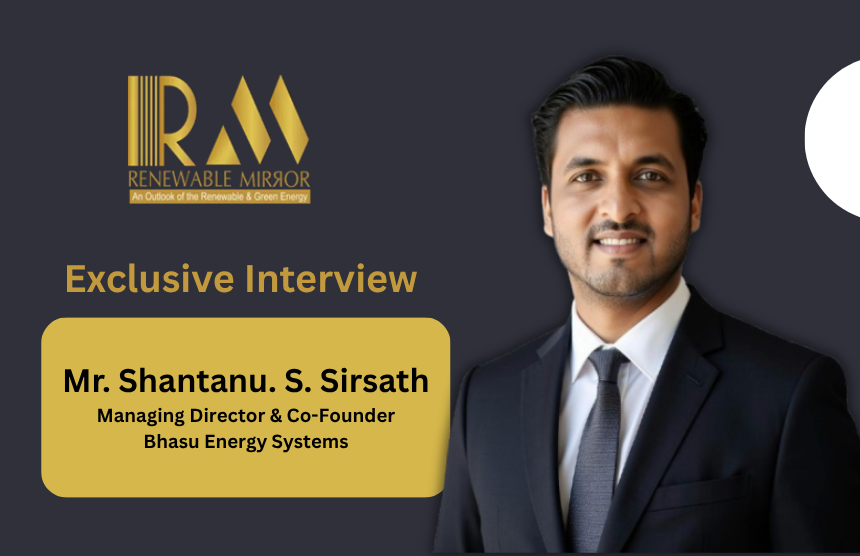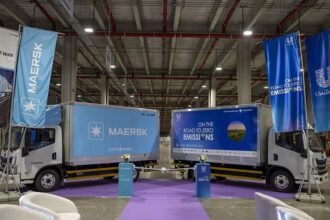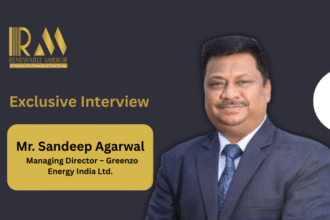Q. Although Bhasu Energy Systems was established only in recent years, its team brings over 15 years of experience in the solar industry. What inspired the company’s founding, and what market gap were you aiming to address?
Bhasu Energy Systems was founded with the vision of bridging the gap between advanced renewable technologies and the practical needs of customers in India. Although the company itself is young, our team has spent over 15 years in the solar industry, working closely with global manufacturers, EPCs, and end users. During this time, we observed that while the market was flooded with products, what was often missing was a combination of technical depth, reliable pre- and post-sales support, and tailored solutions that truly address local project challenges.
Our inspiration came from the belief that solar energy in India needed more than just products—it needed partners who could provide technical clarity, trusted guidance, and long-term collaboration. Bhasu Energy Systems was created to fill this gap by delivering high-quality solutions backed by deep technical expertise, ensuring not only successful project execution but also sustainable growth for our clients and partners.
Q. How has your company structured its supply chain and warehousing to ensure ready stock availability and timely delivery, and which warehouse locations currently support your distribution network?
At Bhasu Energy Systems, we recognize that the timely availability of material is critical for our partners and customers. To address this, we have structured our supply chain with a focus on efficient planning, strategic stocking, and strong logistics partnerships.
We work closely with our OEM partners and distributors to forecast demand, maintain buffer stock, and ensure smooth replenishment cycles. Our warehousing is strategically located to support key markets and enable quick delivery. At present, we operate from warehouses in Pune and Hyderabad, which cater to Central, Western, and Southern India. These hubs allow us to keep a ready stock of fast-moving products, reduce lead times, and provide faster turnaround for project requirements. As our business expands, we are also exploring additional warehouse locations to further strengthen our panIndia distribution network.
Q. Since your launch, what major challenges has your company faced, and how have you addressed or navigated them?
Like any young organization, Bhasu Energy Systems has faced its share of challenges since its inception. The most significant have been establishing trust in a competitive market, navigating supply chain disruptions, and balancing rapid growth with consistent service quality.
We addressed these by leveraging our team’s 15+ years of industry experience and relationships, which helped us quickly build credibility with both customers and suppliers. On the supply chain side, we put robust planning and multiple sourcing options in place to minimize delays and maintain stock availability even during volatile periods. Most importantly, we invested in building a customer-centric culture—ensuring that our partners always receive transparent communication, strong technical support, and reliable after-sales service.
Major Challenges Faced
• Entrenched Competition: The company stepped into a market with established players and had to demonstrate both quality and reliability to earn customer confidence, especially as a newcomer.
• Sourcing and Partnerships: Ensuring consistent product availability and favorable partnerships for high-demand inverters and panels required strategic negotiations and network building.
• Distribution Logistics: Rapid scaling to serve Telangana, Andhra Pradesh, and broader southern/western Indian markets created leadtime and delivery challenges, especially with fluctuating demand and regional infrastructure.
• Brand Awareness: Educating customers about product authenticity and dispelling solar related misinformation were recurring hurdles in customer communication and marketing.
Solutions and Strategies
• Strategic Alliances: Partnering with leading brands like Saatvik Solar for exclusive regional distribution strengthened their product mix, reputation, and access to supply chains.
• Network Expansion: Bhasu Energy Systems expanded its presence by setting up robust warehousing and logistics hubs in Hyderabad and pursuing footprints in adjoining states for timely delivery.
• Customer Education: Outreach efforts include regular social media campaigns and direct engagement to correct misconceptions and build credibility regarding solar components and solutions.
Q. What are your company’s goals for the coming years in terms of expanding product lines, entering new markets, investing in R&D, pursuing vertical integration, and other strategic initiatives?
Our vision for the coming years is to position Bhasu Energy Systems as a trusted, innovation-driven partner in India’s renewable energy landscape.
Strategically, we are working on multiple fronts:
• Expanding Product Lines: We plan to broaden our portfolio beyond solar inverters and modules, adding complementary technologies such as energy storage, hybrid solutions, and smart energy management systems.
• New Market Entry: While we are currently strong in Central, Western, and Southern India, our goal is to build a pan-India presence and selectively explore opportunities in neighboring markets.
• R&D and Technology: We are keen to collaborate with technology partners and invest in R&D to bring in customized solutions tailored for Indian climatic and grid conditions, ensuring higher reliability and performance.
• Vertical Integration: Over time, we aim to move closer to vertical integration by strengthening our role in the value chain—from supply to service— enhancing customer experience and operational efficiency.
• Strategic Partnerships: Building strong alliances with global manufacturers, EPCs, and financial partners will remain central to our growth strategy
Q.Which geographical markets is your company focusing on, and do you see greater demand in states with higher solar potential or in regions facing rising power deficits?
Our current focus is on strengthening our presence in Central, Western, and Southern India, regions that have both high solar potential and strong project activity. States like Maharashtra, Gujarat, Karnataka, Telangana, and Andhra Pradesh are seeing significant adoption due to favorable policies, abundant sunlight, and a proactive developer ecosystem.
At the same time, we also recognize the growing opportunity in regions facing power deficits and grid instability, where solar combined with storage or hybrid solutions can deliver immediate value. In fact, demand in such areas is accelerating as industries and institutions look for reliable and cost-effective alternatives to conventional power.
Looking ahead, our strategy is twofold—continue building in high solar resource states while also expanding into emerging markets where energy access and reliability are pressing challenges. This balanced approach will ensure both growth and impact across India.
















